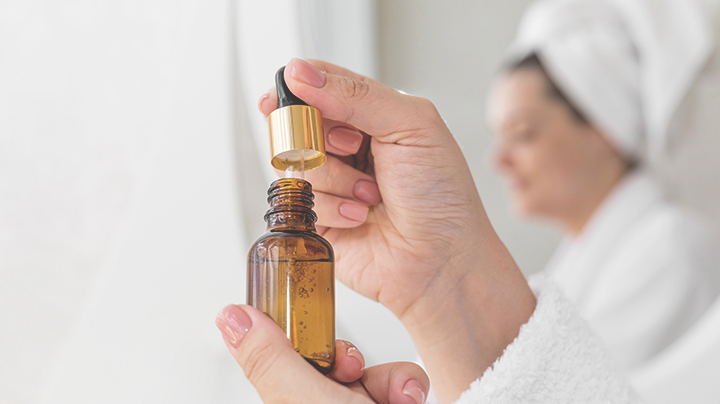Alex Gonzaga’s Top 3 Belo Treatments
January 18, 2021
More results...

“Acid” sounds like the most horrible thing you could put on your face. But when you remove the association with words like “muriatic” and “radioactive,” acids in the right formulations can work wonders for beleaguered, acne-prone, blemished skin. But first, there’s the question of which one is right for you. You may have walked out of a skincare department store aisle feeling more confused than enlightened—what the heck is the difference between AHA, BHA, and PHA anyway? Never fear; the confusion ends here.
Before anything else, you should know that the “HA” in all three of these words stands for “hydroxy acid.” There’s AHA for alpha hydroxy acid, BHA for beta hydroxy acid, and PHA for polyhydroxy acid. We’ll explain everything down below.
AHA (alpha hydroxy acid) is derived from sugar cane, and it has the smallest molecules, so it penetrates into the skin very easily. It’s also able to stimulate collagen and loosen the bonds between cells in your stratum corneum (AKA the top layer of your skin). By loosening those cells, it becomes easier for them to slough off, revealing the good skin you have underneath. (Related: Salicylic Acid vs. Glycolic Acid: What’s the Difference?)
Look into your skincare stash, and you’re likely to already have an AHA burrowed there, working its magic without you realizing it—glycolic acids and lactic acids are the most commonly-used AHAs. (Shop: Belo Prescriptives Glycolic Soap 5%, P500)
BHAs mean that two carbon atoms separate the hydroxy molecule from the acid. Two, hence the word “beta.” It’s derived from willow bark, which has been used in ancient Greek and Chinese civilizations to curb pain, fever, and (hint, hint!) inflammation. That also means it’s capable of being dissolved or liquefied in oil, which makes it great at penetrating deep into the pores of your skin. And naturally, its oil-solubility makes it very ideal for those with oily skin types!
Salicylic acid is a popular BHA, and it’s often used as a spot treatment or acne treatment, with extremely effective results. (Shop: ZO® Oil Control Pads with salicylic acid, P4,050 until December 30, 2020)
People with sensitive skin types might not fare well with AHAs or BHAs, which can come off too strong. For that, there’s PHA. Because it has a larger molecular structure than AHA, its penetration into the skin is slower, thus decreasing the risk of irritation and the intensity of exfoliation. Its antioxidant properties also protect your collagen from breaking down, making PHAs perfect for women in their 40s and above.
Gluconolactone is a popular PHA—it encourages exfoliation and reduces irregularities without actually causing visible peeling. (Shop: FILLMED® Perfecting Solution with gluconolactone, P2,000)
That depends on a variety of factors. While AHAs cater to a greater variety of skin types, BHAs may be better for those with oily, acne-prone skin. Finally, PHAs are best for sensitive or mature skin. Still, the best way to go is a consultation. You don’t want to use the wrong acids and end up exacerbating your skin condition. Certain acids shouldn’t be mixed with certain ingredients, so the insight of a Belo MD is a must!
Click here to purchase the Belo Prescriptives Glycolic Soap 5%, here to purchase the ZO® Oil Control Pads, and here to purchase the FILLMED® Perfecting Solution.
To book your in-person consultation, call 8819-BELO, or email info@belomed.com.
Want to chat before diving in? Click here to book an online consultation with a Belo MD. If you want to speak to the Beauty Expert herself, click here to book an online consultation with Dr. Vicki Belo.